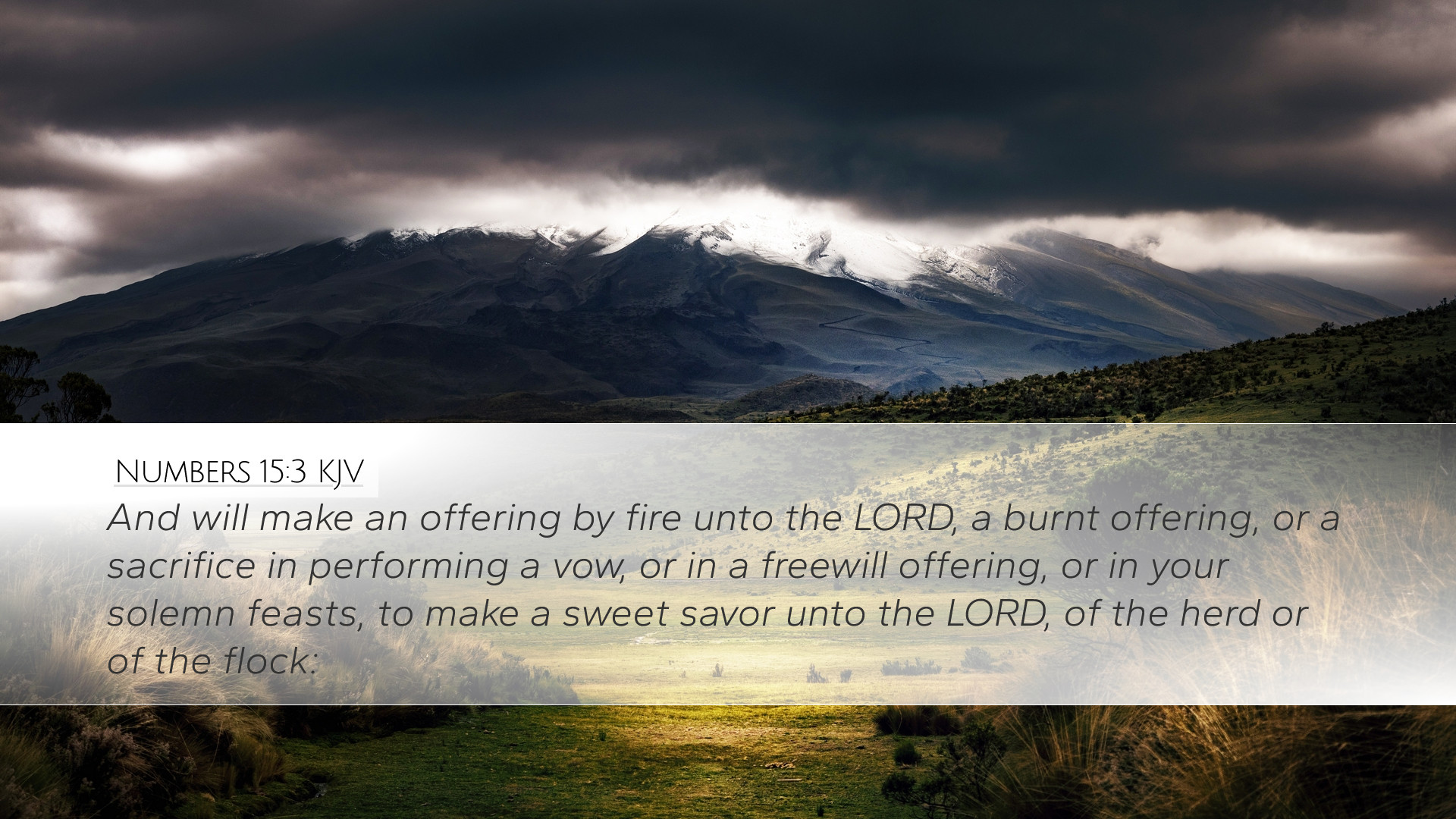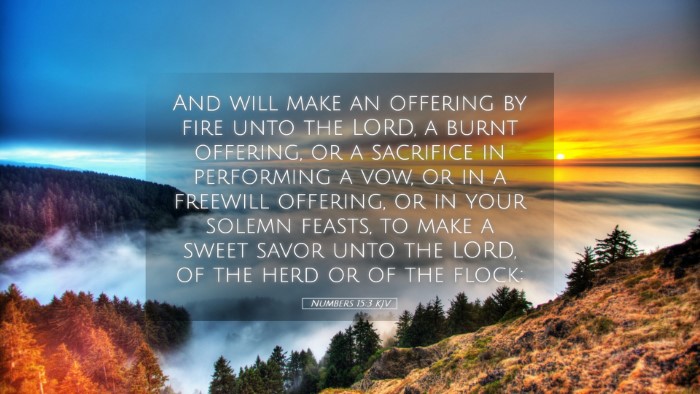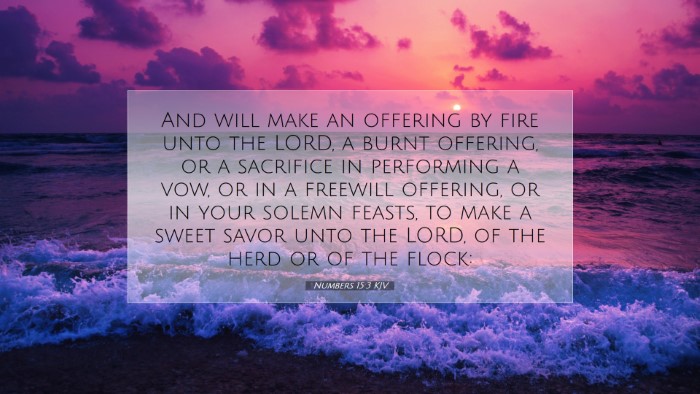Commentary on Numbers 15:3
Numbers 15:3 states: "And will make an offering by fire unto the Lord, a burnt offering, or a sacrifice in performing a vow, or in a freewill offering, or in your solemn feasts, to make a sweet savour unto the Lord, of the herd or of the flock." This verse serves as a crucial element in understanding the sacrificial system established in the Mosaic law. Below, insights from various public domain commentaries are compiled to provide a deeper theological reflection.
Purpose of Sacrifices
Matthew Henry notes that the offerings mentioned here serve several purposes:
- Expression of Devotion: These sacrifices are a means for the Israelites to express their devotion to God.
- Acknowledgement of God’s Sovereignty: The act of offering acknowledges God’s authority over their lives and their possessions.
- Means of Atonement: Sacrifices convey the seriousness of sin and the need for atonement, foreshadowing Christ’s ultimate sacrifice.
Types of Offerings
Albert Barnes highlights the different types of offerings mentioned in the verse:
- Burnt Offerings: These were completely consumed on the altar, symbolizing total dedication to God.
- Offerings for Vows: They represent a commitment made to God in response to specific blessings or in times of distress.
- Freewill Offerings: These are voluntary gifts that reflect the giver’s gratitude and love towards God.
- Solemn Feasts Offerings: These contributions were made during religious festivals and were intended to enhance communal worship.
Sweet Savour to the Lord
Adam Clarke expounds on the phrase "sweet savour unto the Lord," suggesting that this indicates not only the aroma of the offerings but also the spiritual significance behind them:
- Symbolizing Acceptance: The "sweet savour" signifies that the offerings are pleasing to God and accepted by Him.
- Foreshadowing Christ: These sacrifices prefigure Christ’s atoning death, which God fully accepted for humanity’s sin.
- Call for Holiness: The pleasing nature of the offerings reminds believers to offer their lives as living sacrifices, holy and acceptable to God (Romans 12:1).
The Herd and the Flock
The mention of "herd or flock" signifies the best of what one had to offer:
- Quality of Sacrifice: Levitical law often dictated that sacrifices should not be blemished, thus calling for the best as an offering to God.
- Collective Identity: The terms also reflect the communal aspect of worship, emphasizing togetherness in the act of offering.
Theological Implications
This verse and its commentary hold numerous implications for faith and practice:
- Nature of Worship: True worship involves offering sacrifices that reflect one's commitment to God.
- God's Desire for Relationship: The sacrificial system indicates God’s desire for an intimate relationship with His people.
- Call for Generosity: The notion of freewill offerings encourages believers to give freely and generously out of gratitude to God.
Conclusion
In summary, Numbers 15:3 provides profound insights into the nature of worship, sacrifice, and the believer's relationship with God. By examining public domain commentaries from Matthew Henry, Albert Barnes, and Adam Clarke, we can appreciate the multifaceted elements of offerings made unto the Lord. As believers today, we are called to offer our lives and resources as a testament of our devotion, reflecting the ultimate sacrifice of Christ.


